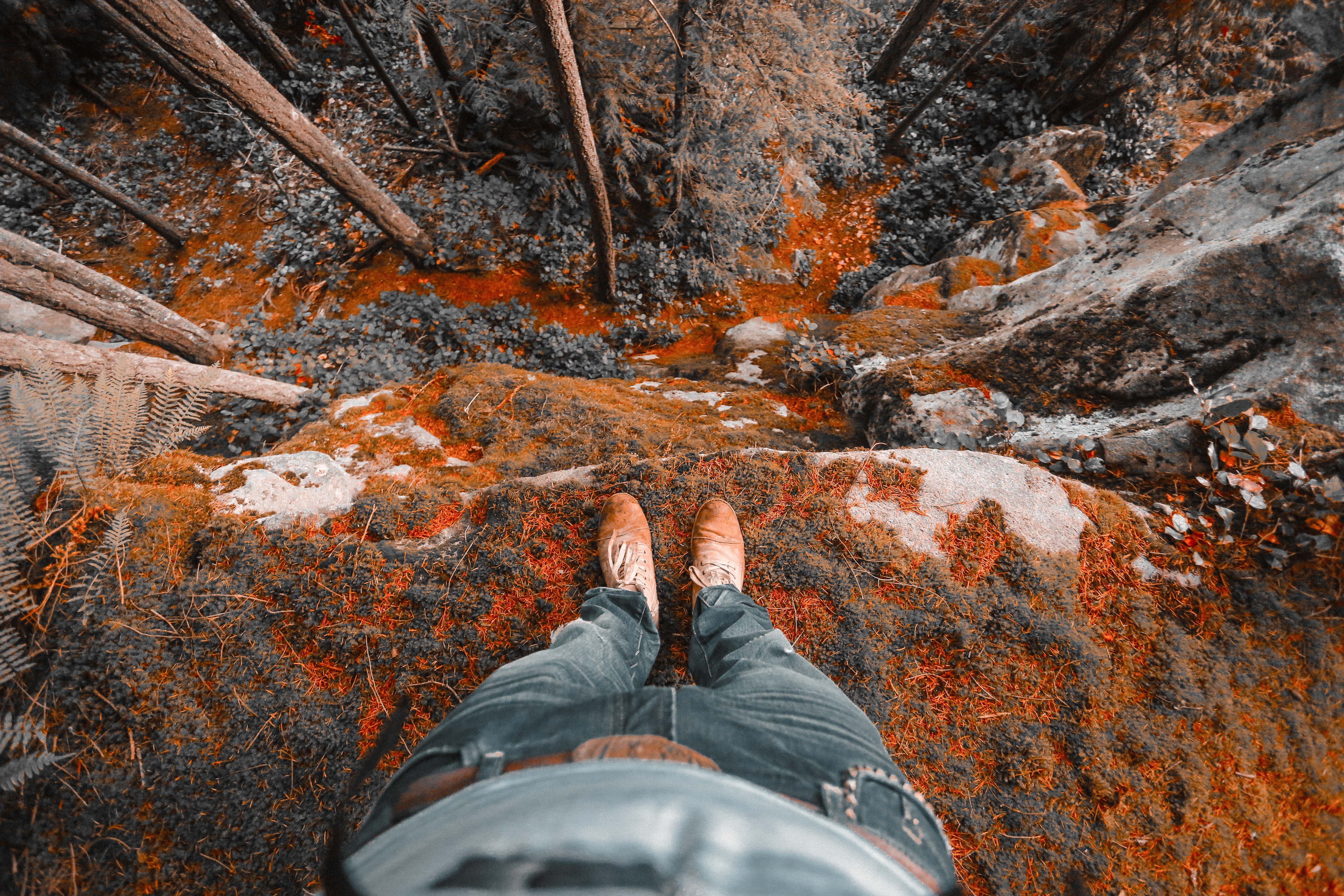In my twenties I was involved with a religious community that did a lot of heavy ritual work. One of the first lessons they taught and emphasized was the importance of grounding before and after a ritual. When opening up one’s consciousness to larger-than-mundane potential, un-groundedness could leave one vulnerable to overwhelm, nasty energy infiltration or emotional contagion, or avoidable accidents.
When I came into the therapy world, I thought grounding was one of those “out-there” spiritual concepts that would be too weird for Western psychology, but I was surprised to find it deeply integrated into a number of practices and methodologies. Many trauma therapists intuitively or explicitly called for it.
In the kinds of spiritual communities that are deeply New Age flavored and exalt the psychic realms, some folks expressed at best ambivalence toward groundedness. There was a sense that being too grounded means you’re not connected to the spiritual world, unable to hear or sense or connect with the greater-than-mundane beings with whom we share reality. And yet there were the people who were so deeply wedded to that realm and those beings that they seemed utterly flummoxed by the daily work of living in this world.
Among Christians I’ve heard a saying, “Too heavenly minded to be of any earthly good.” There’s a lot of wisdom here, and while those Christians might not appreciate my extending this to include people who only wear purple because it activates the crown chakra, I see the relevance.
Yet this separation between heaven and earth truly only seems to exist within particular cultures. It’s not the “truth,” not a splitting we have to heal anywhere but within our own bodies, practices, and communities. For in my practice, the more deeply grounded I become in my body, the more I become aware of that which is beyond the Self.
As I’ve taught in my spiritual discernment workshops, what we might call spirits are experienced through the body and emotions as much as through an esoteric ritual text. My friend, essayist and firebrand Rhyd Wildermuth, recently reminded me that as recently as the Victorian era, emotions were considered to be qualities that came upon us from without. We were seized by “a spirit of despair” rather than being despair.
Incidentally, this notion of emotions as “a spirit” seems deeply implicated in the demonstrable realities of emotional contagion, and connects us back to the cultural memory of animism that our mechanistic, materialistic cultural threads are embarrassed to acknowledge. Then there are people like Dare Sohei who are more deeply working that vein in ways that seem strikingly parallel to and ahead of my thinking.
In the practice of Internal Family Systems, we can find these spirits within our bodies, and separate them out from consciousness, and come into dialogue with them. The more deeply we can practice this, the more clearly these parts become apparent and are able to communicate the truths and gifts they have to offer.
Without groundedness, however, we have no anchor for the Self to be with and hear what these sprits offer. We’ve been born into these bodies and experience the world through all of the senses and truths they can receive. Our bodies can do things the gods cannot, and that is our gift and our curse. It is why there are gods who love and desire us, and it is also why we feel so often far from them.
To become grounded, however, means to be of and with the body, and to experience life through the body. We are capable of these astounding capacities to separate from our bodies, or knot them up in confusion and fear, and these separations are gifts from those spirits trying to protect the Self from annihilation, yet they also inhibit the Self from achieving its full potential.
Panic, for example, is the experience of a part of us that is ungrounded and terrified. Our panicking parts tend to live outside the present, either in a past horror we experience, or a feared future we fear is coming to pass. When the panic rises, we tend to want to move away from it, contain it, stuff it down, but that leaves the panicking part at the edges, alone in its terror.
When we can ground and feel the body that is greater than the panic, and stay slow, stay present, stay breathing, we can gently invite the panic into that body and groundedness. We can help the panic to feel our slowness of breath. We can help the panic to feel the stability of the ground through our feet. We can help the panic to feel supported, loved, and held by our bodies, which can help that part become calm enough to then take in the truth of the reality it’s in, rather than the terror of the reality it fears.
So grounding is always a useful practice, to make bodies into temples that the spirits may visit.


